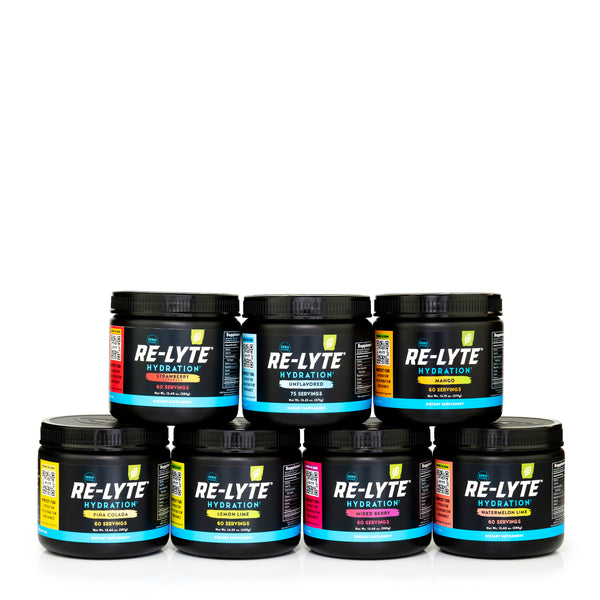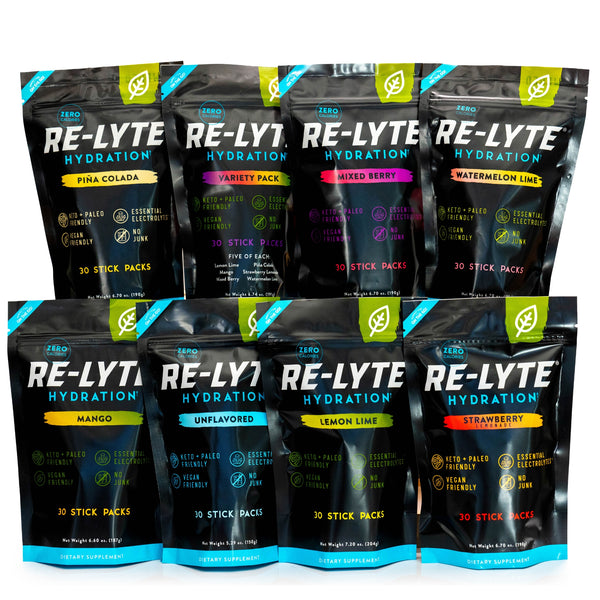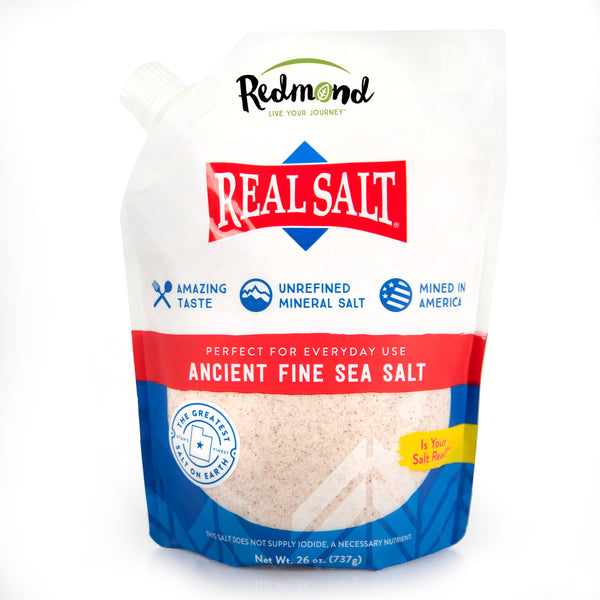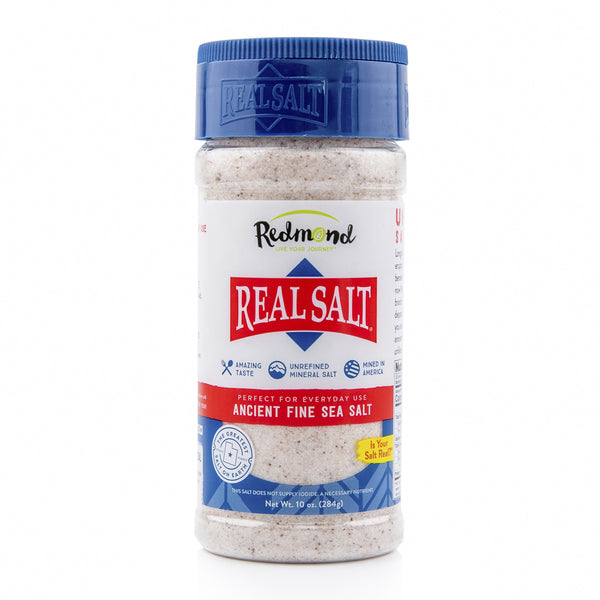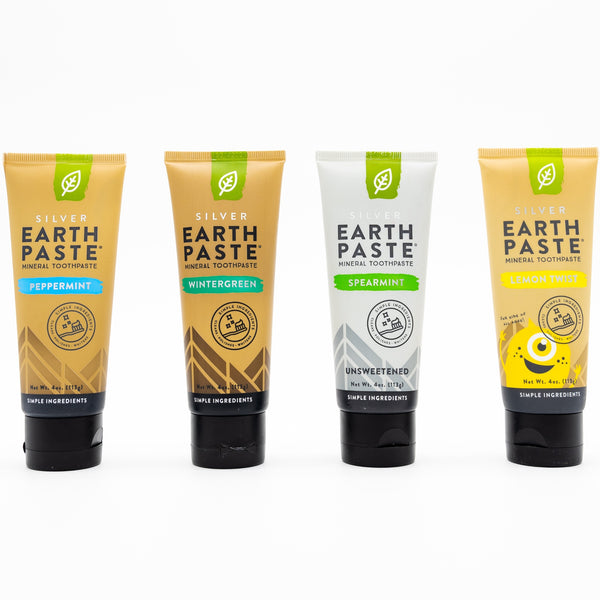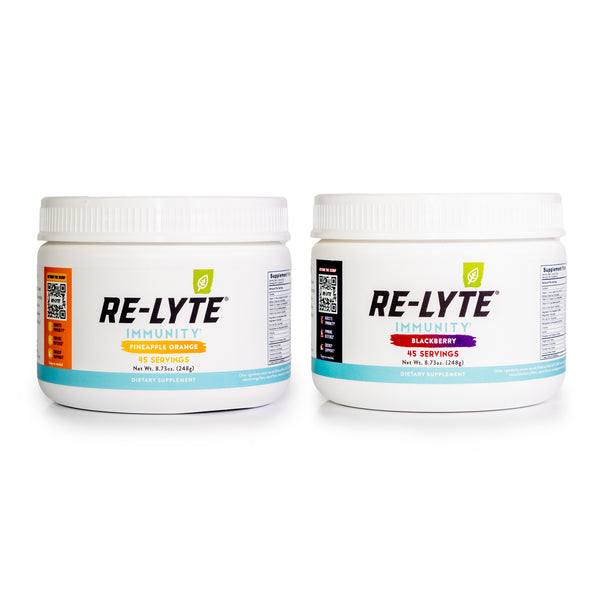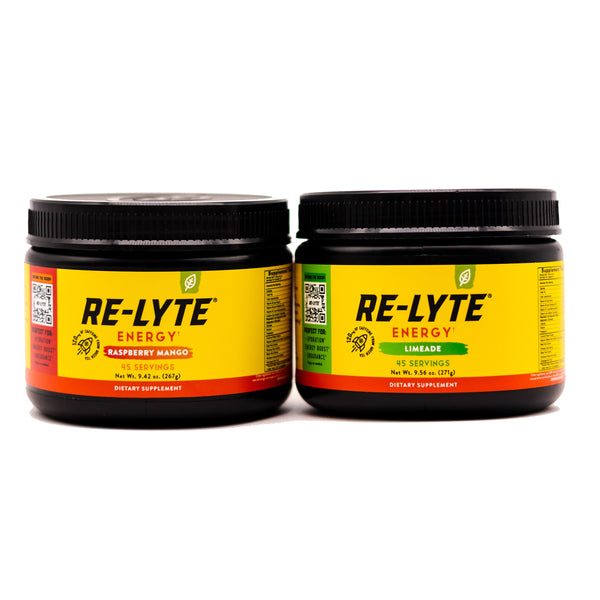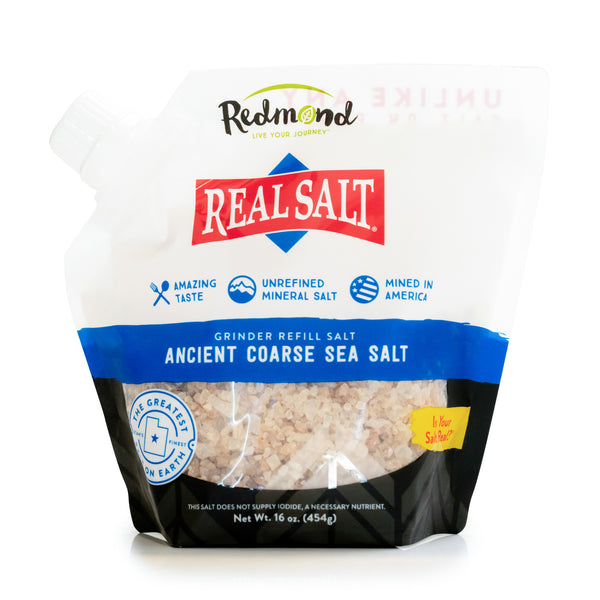Why Should You Drink Electrolytes?
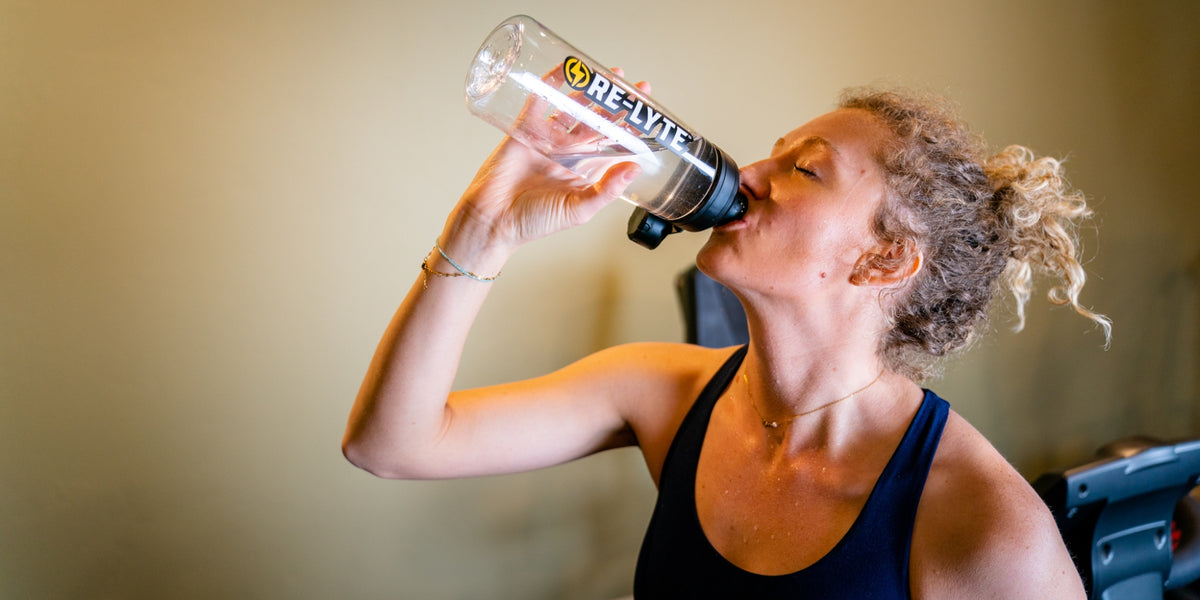
Article at a Glance:
- Electrolytes are minerals with an electric charge that conduct electricity in the body, playing a crucial role in bodily functions.
- The main electrolytes in the body include sodium, potassium, calcium, magnesium, and chloride, which are found in body fluids like blood, sweat, and urine.
- Electrolytes help send electrical signals between cells, allowing muscles to move, the heart to beat, and the brain to function properly.
- They also maintain the balance of fluids inside and outside cells, ensuring proper hydration and enabling nutrient exchange and waste removal.
- Factors such as exercise, illness with fluid loss, hot weather, certain medications, fasting, and specific diets may require electrolyte supplementation to replenish levels and maintain optimal health.
You've probably heard the term “electrolytes” tossed around your whole life (especially after recovering from the flu or breaking a sweat in the summer heat) but do you really know why they're so important?
If your answer is no, it’s time we changed that! Electrolytes make a big difference in how you feel and how well your body functions, and if you understand their power you’re more likely to get plenty of them. So let’s demystify these amazing minerals!
Electrolytes 101: What Are They, and Why Do You Need Them?
Electrolytes are minerals that have an electric charge. More specifically, these minerals separate into positively or negatively charged ions when mixed with water, and ions have the ability to conduct electricity.
You may not know this, but the human body runs on electricity. Our cells conduct electrical currents, and our nervous system uses electricity to send important messages to the rest of the body. And that’s why electrolytes are so important.
Electrolytes help send electrical signals between cells and play key roles in the many processes that happen within each cell. Electrolytes allow your muscles to move, your heart to beat, your lungs to breathe, and your brain to think—some pretty crucial stuff.
Electrolytes also make sure there’s the perfect amount of fluid inside and outside of your cells. Your cells are pretty picky about their water content and for good reason! If the amount of water gets out of balance, cells can swell like an overinflated balloon or shrivel like a raisin. Either scenario can have serious consequences, such as organ damage or death.
Luckily, electrolytes are the ultimate hydration harmony keepers. They help maintain harmony through a process called osmosis. Osmosis is the movement of water molecules through a semipermeable barrier, like a cell membrane, from an area with more water and fewer electrolytes (a less concentrated solution) to an area with less water and more electrolytes (a more concentrated solution) to create balance.
Put simply, during osmosis, electrolytes help determine the direction water moves. When there’s a higher concentration of electrolytes and other particles on one side of a cell membrane, the water molecules are drawn toward that area. This movement is crucial for maintaining fluid balance within cells and tissues.
An Intro to Each Electrolyte
The main electrolytes in your body are sodium, potassium, calcium, magnesium, and chloride. Now that you have a better idea of what electrolytes do in general, let’s dive into what each of these does specifically.
Calcium
Did you know that calcium is the most abundant mineral in the human body? Your body needs calcium to:
- Maintain the structure and strength of your bones and teeth
- Clot blood to prevent excessive bleeding
- Contract your muscles
- Maintain a normal heart rhythm
Top Food Sources: Dairy Products, Leafy Greens, Tofu and Soy Products, Sardines, Almonds
Magnesium
Magnesium plays a role in more than 300 chemical reactions that are crucial to your body’s overall health and well-being. Your body needs magnesium to:
- Convert food into energy
- Relax and contract your muscles
- Maintain a healthy nervous system
- Support bone health and density
Top Food Sources: Pumpkin Seeds, Spinach, Black Beans, Cashews, Almonds
Sodium
Sodium is a key component of table salt, which is known as sodium chloride. It’s not only essential for human health but also for the health and well-being of all animal life. Your body needs sodium to:
- Transport nutrients across the intestinal lining into the bloodstream
- Maintain proper fluid balance
- Contract and relax muscles
- Send signals between nerve cells
Top Food Sources: Unrefined, Ancient Sea Salt (we know, we’re biased!)
Chloride
Chloride is the second half of the dynamic duo that makes up salt, and it’s part of the reason salt enhances the flavors of foods. Chloride interacts with taste receptors on the tongue in a way that balances and brings out other flavors. Your body needs chloride to:
- Regulate white blood cells that contribute to the body’s immune response
- Digest food
- Maintain proper nerve function
- Support balanced pH of bodily fluids
Top Food Sources: Salt, Seaweed, Rye Bread, Olives
Potassium
Potassium is the third most abundant mineral in your body, and most of this potassium (about 98%) is found inside your cells. Your body needs potassium to:
- Maintain the balance of fluids and electrolytes within the body
- Keep your kidneys functioning properly
- Help regulate blood pressure
- Support a healthy heart rhythm
Top Food Sources: Bananas, Avocado, Spinach, Sweet Potato, Salmon
Does Everybody Need to Replenish Electrolytes?
Clearly, everyone needs electrolytes to survive….just look at how many critical bodily functions depend on them (and the examples we mentioned above are just the tip of the iceberg). But does that mean everybody needs electrolyte supplements? Or are the electrolytes we get through food enough?
There are a lot of factors and conditions that may be a sign you need more than what you get from food alone. Here are some life situations to consider when deciding whether you should use an electrolyte supplement:
- Exercise and Physical Activity: You know that you lose significant amounts of electrolytes through sweat during prolonged or intense physical activity (especially in hot and humid conditions). But you also lose electrolytes during moderate activity, even when it doesn’t feel like you’re sweating. Replenishing electrolytes, particularly sodium and potassium, is essential to maintain proper fluid balance and prevent dehydration.
- Illnesses with Fluid Loss: Certain illnesses, such as gastrointestinal infections with vomiting and diarrhea, can lead to significant fluid and electrolyte loss.
- Hot Weather: In hot weather, especially if you’re exposed to high temperatures for extended periods, you can lose electrolytes through sweat. This can lead to dehydration and imbalances in electrolyte levels.
- Hydration After Drinking Alcohol: Alcohol consumption can have a diuretic effect, increasing urine production and leading to fluid and electrolyte loss. Replenishing electrolytes along with fluids after drinking alcohol can aid in rehydration and restoring electrolyte balance.
- Medical Conditions or Medications: Certain medical conditions or medications may disrupt electrolyte balance in the body, causing your body to need significantly more or less of particular electrolytes.
- Prolonged Fasting: Prolonged fasting can result in electrolyte imbalances because you’re not taking in any (or enough) electrolytes through food.
- Your Diet: Your diet can impact whether it’s a good idea to take electrolyte supplements. Low-carb diets, for example, trigger changes in your body’s fluid and electrolyte balance, and it’s typically a good idea for people on these diets to supplement with electrolytes. People who eat diets that contain very little processed food can also benefit from getting more sodium because they’re getting very little in their diet.
- Pregnancy and Nursing: When you’re pregnant, it’s recommended that you increase your water intake, and anytime you increase your water intake, you’ll want to increase your electrolyte intake to keep them in balance. When you’re nursing, breastmilk is your baby’s primary source of electrolytes, so you’ll want to make sure you’re taking in enough for both you and your little one.


Electrolytes Are Amazing!
We hope this article helps you understand just how important and amazing electrolytes are! If you do decide to turn to an electrolyte supplement for support, we recommend doing your research and finding something that aligns with your values and lifestyle. We created Re-Lyte Hydration for people who want an electrolyte product that contains a balanced ratio of essential electrolytes (including sodium from our unrefined, ancient sea salt Real Salt) without any sugar or artificial ingredients. Take a closer look and see if it’s right for you!
Sources:
- How the human body uses electricity— University of Maryland Graduate School.
- Electrolytes: Supporting the Body’s Electrical System—Pulse.
- Everything you need to know about electrolytes— Medical News Today.
- Electrolytes: Definition, Functions, Imbalance and Sources— Healthline.
- What Happens to Your Cells When You Are Dehydrated?— Sciencing.
- Electrolytes Important for Fluid Balance—An Introduction to Nutrition.
- What is Osmosis?— FutureLearn.
- Osmoregulation and Osmotic Balance - Transport of Electrolytes across Cell Membranes—General Biology.
- What effect does drinking too much water have on your body?— Science Focus.
- Calcium: Fact Sheet for Health Professionals— National Institutes of Health.
- Calcium— Harvard T.H. Chan School of Public Health.
- Magnesium: Fact Sheet for Health Professionals— National Institutes of Health.
- Chloride—Harvard T.H. Chan School of Public Health.
- Chloride in diet— Mount Sinai.
- Chloride ions evoke taste sensations by binding to the extracellular ligand-binding domain of sweet/umami taste receptors—eLife.
- Weird Science: Salt is Essential to Life— Exploring Our Fluid Earth.
- Potassium: Fact Sheet for Health Professionals— National Institutes of Health.
- Electrolyte Drinks: What Are They and Do You Need Them?— Eating Well.
Comments (11)

Can I drink re Ly te twice a day
———
Redmond Life replied:
Hi Nino! The answer to how many servings you should have each day isn’t one-size-fits-all. Factors such as how much you exercise, the climate you live in, any health conditions you may have, and other variables all play a role in determining what suits you best. We recommend noting the electrolyte content in each serving of Re-Lyte and adjusting your intake to meet your unique hydration needs.

You recommend tofu and soy for calcium, I keep reading and hearing that you should stay away from all soy products regardless of non gmo certification.
What’s your take?
———
Redmond Life replied:
Hi Lee, thanks for your question. While tofu is a good source of calcium, but every person should choose what foods are right for them. If tofu is off your list there are a lot of other great sources of calcium to try, including Re-Lyte Hydration that contains 60 mg per serving.

I’m wondering g if you would address hydration for high altitudes. I live at 7200 ft above sea level and have for a number of years. But now that I’m in my 60’s hydration means so much more than just water.
———
Redmond Life replied:
Hi Jody, Thanks for the suggestion. It’s true that high altitude can indeed contribute to dehydration. I’ll send your suggestion to our content team.

Hello. I use Redmonds salts and love them! I also drink LMNT. Also I’ve watched video of ur salts being mined in Utah! Thank u for all u do! 👍❤️
———
Redmond Life replied:
Hi Deborah, thanks for your great feedback. We are proud to be an American company and of our unrefined ancient sea salt. We hope you’ll give our clean electrolyte mix, Re-Lyte Hydration, a try. It’s made with Real Salt, and we think you’ll love it!




